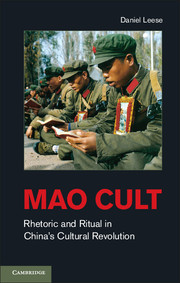Book contents
- Frontmatter
- Contents
- Illustrations, Figures, Maps, and Table
- Preface
- Chronology of Major Events
- Abbreviations
- Map Administrative divisions of China
- Introduction
- Part One Coming to Terms with the “Cult of the Individual”
- Part Two Charismatic Mobilization
- Part Three Cult and Compliance
- Conclusion
- Bibliography
- Glossary
- Index
Introduction
Published online by Cambridge University Press: 07 October 2011
- Frontmatter
- Contents
- Illustrations, Figures, Maps, and Table
- Preface
- Chronology of Major Events
- Abbreviations
- Map Administrative divisions of China
- Introduction
- Part One Coming to Terms with the “Cult of the Individual”
- Part Two Charismatic Mobilization
- Part Three Cult and Compliance
- Conclusion
- Bibliography
- Glossary
- Index
Summary
At the turn of the twentieth century, the Confucian reformer Kang Youwei set out to describe an ideal future world order in his Book of Great Equality. Kang envisioned a society in which emotional bonds had been reduced to a minimum. The creation of a global state was to be realized by overcoming the boundaries of nation, class, or gender, even the distinction between man and animal. Marriage was to be replaced by short-term contracts and care for infants and elderly persons was to fall under the duty of specific state institutions. The assignment of work should follow a standard pattern according to age, covering all types of labor within a lifetime. In the age of great equality, there would be no personal property or family structures. The differences between the races would have vanished over time through constant crossbreeding, the white and yellow race having proven their superiority. By eliminating all racial, social, and national segregation, Kang hoped to circumvent the dangers of emotion and irrational behavior, which so far had prevented the rule of peace and harmony in the world.
Information
- Type
- Chapter
- Information
- Mao CultRhetoric and Ritual in China's Cultural Revolution, pp. 1 - 24Publisher: Cambridge University PressPrint publication year: 2011
